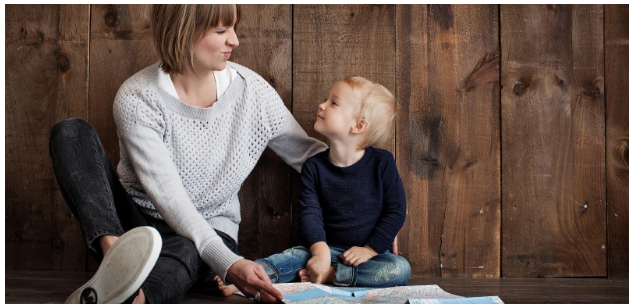As moms, we want to give our children the best life possible. We do our best to give them adequate shelter, feed them nutritious food, and send them to the best schools. We also work hard to be able to save money for securing our kids’ future.
What It Takes to be a Good Parent
Beyond providing for our children’s basic needs, our role as parents extends to protecting them from harm. Yes, that even includes being careful when sharing photos of your kids and their sensitive information on social media.
Being protective of your children’s privacy in today’s digital age is one great quality to have as a modern parent. You can manage your kids’ online data (as well as yours) with the help of an online reputation management website that can monitor your children’s identity for your peace of mind.
Building your children’s character is also a must-have parenting skill, as it will help them deal with the real world on their own when they become adults. Some children grow up not having enough confidence in making choices in life because they are used to their overprotective parents making decisions for them all the time. Others have difficulty respecting other people’s boundaries because they grew up with their parents who always intervened for them.
4 Parenting Styles
Learning how to become a good parent is tough but doable. The first step is self-awareness, which you can achieve by educating yourself about the different parenting styles, knowing your own style, and discovering how your style will influence your children’s behaviors.
Authoritarian Parenting
Are you the type who likes to control and oversee every little thing your children do? Do you go to extremes like stalking your children’s friends on Facebook and Instagram to check what kind of people they are? Do you like setting up rigid rules for your kids to follow? If so, then you’re most likely an authoritarian parent.
Studies claim that children raised in an authoritarian household are at risk for depression and anxiety. They also have difficulty developing their social and communication skills. These children also tend to adopt their parents’ authoritarian attitude in their relationships with other people and even when they become parents themselves.
Indulgent Parenting
Parents whose style fall under the indulgent (also called permissive) category dote on their children a lot and rarely discipline them. They tend to pamper their children too much and go to great lengths to keep them from getting hurt and experiencing failure and disappointments.
On the upside, children who are raised this way seem to be more artistic and creative than children who were raised with other parenting styles. However, they tend to develop a blown-up sense of entitlement, little self-control, and limited boundaries. Children raised by permissive parents will also have difficulty accepting defeat and rejection because they are used to always receiving praise.
Neglectful Parenting
While there are parents who dote too much on their children, neglectful parents are the exact opposite—they are too busy to fulfill their responsibilities to their children. To make up for the lack of time spent with their kids, these parents provide them with toys, gadgets, books, playschool fees, or anything that will keep their children preoccupied and distracted from the fact that their parents cannot be there for them most of the time.
According to experts, children with neglectful parents often develop self-control issues and difficulty following rules due to their lack of exposure to them while growing up. They may also find it hard to express themselves and communicate their thoughts.
Authoritative Parenting
Not to be confused with authoritarian parenting, authoritative parenting is the most balanced among the four styles. Parents still have control over their children, but they also encourage and empower their young ones to decide and do things by themselves as they grow older.
Children raised by authoritative parents grow up with higher levels of independence and better leadership potential. They also turn out to have better social skills and self-control early into adulthood.
There is no set of clear-cut rules when it comes to good parenting, as it differs in every household and culture. Nonetheless, if you’re serious about becoming a better parent, it’s wise to be aware of your own parenting style and how you can improve it so that you can raise them to become responsible adults.




